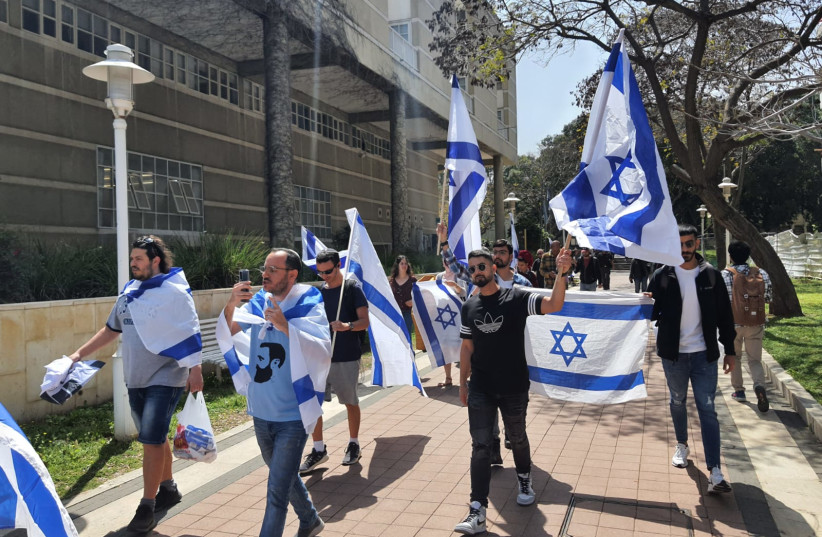Since October 7, many Jewish college students have experienced and exhibited significant changes on campuses regarding their Jewish identity, participation in Jewish programs, and increased social tension, according to new research done at College Pulse by PhD Eitan Hersh.
Hersh received his PhD from Harvard University in 2011 and is a professor of political science at Tuft University today. His focus is on US elections and civic participation, and he has written books and many articles about politics. In addition to his work on elections and civic engagement, Hersh has also written on antisemitism, terrorism, healthcare, and the opioid crisis.
What did he find?
The research provides new insight into the impact of the October 7th massacre and the alarming rise in antisemitism on campuses. Hersh includes responses from another study on Jewish college students in this research.
"The data show a campus environment that is a much different place for Jewish students. They felt a big social change. Many of their non-Jewish peers of all political perspectives act differently toward them."
Eitan Hersh
The first part of Hersh's research notes that more than a third of Jewish students report that they are hiding their identity to fit in and that they are being judged when they participate in Jewish activities. Sadly, the numbers have doubled since Hamas' attack in October.
Additionally, many Jewish students feel that they are being socially punished for supporting the right of Israel to exist, which is corroborated by non-Jewish students who participated in the survey. "A major change from our survey just two years ago is that more of these young people have formed opinions and have increased their support for the state," Hersh noted.

In the second part of the research, Hersh mentions that Jewish students feel a heightened sense of Jewish identity, with 35% saying that they feel very close to a Jewish community. In tandem with this finding, attendance at Jewish activities and programs on campuses has increased.
The third part of Hersh's research covers his finding that young people on the left are more likely to exhibit extreme negative attitudes when it comes to Israel, whereas young people on the right are more likely to accept ominous and prejudicial statements about Jews.
The director of Research and Learning at the Jim Joseph Foundation, Stacie Cherner, noted that "the data shows both immense challenges and opportunities" for those who wish to show compassion and help Jewish college students. "the research goes beyond anecdotal stories [...] Jewish students feel more isolated [...] from peers of all political perspectives" Cherner said.
